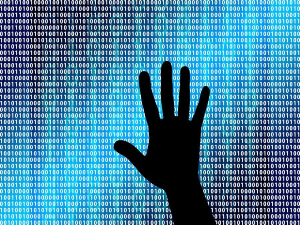
In the wake of the COVID-19 pandemic, businesses have discovered a fresh operational horizon – the ability to work remotely. The telework revolution, though laden with advantages such as heightened productivity and flexibility, is not without its share of cybersecurity vulnerabilities. This blog aims to shed light on the potential threats in the digital landscape and provides concrete steps to safeguard your business.
Identifying Hazards in the Remote Work Ecosystem
With remote operations, businesses open themselves up to a diverse range of cybersecurity threats. The fallout from these can range from financial losses to damage to your reputation. Here are the chief dangers lurking in the remote work sphere:
- Unprotected Wi-Fi Networks: Remote workers may connect to your company data using public or unsecured home Wi-Fi networks, providing a gateway for hackers.
- Phishing Attacks: These deceptive messages, often appearing legitimate, can trick your employees into sharing sensitive data or inadvertently downloading harmful software.
- Weak Passwords: Employees who opt for easy-to-remember or commonly-used passwords make your company data a sitting duck for hackers.
- Outdated Software: Unpatched systems and obsolete software serve as open invitations for cybercriminals.
Building a Secure Remote Work Environment
To protect your business from these lurking cybersecurity threats, you could:
- Establish a Comprehensive Remote Work Policy: This should provide clear guidelines on password management, network connections, and handling sensitive data.
- Invest in Employee Training: Regular cybersecurity training sessions can empower your employees to identify potential threats and handle them effectively.
- Encourage VPN Usage: A virtual private network (VPN) can secure your company data by encrypting information, making it more challenging for cyber thieves to intercept.
- Regular Software Updates and Patching: Keeping your operating systems, browsers, and security tools up-to-date helps fend off known vulnerabilities.
- Implement Multi-factor Authentication (MFA): MFA acts as an extra line of defense, making unauthorized access to company resources exceedingly difficult.
Fortifying Your Business with Strong Cybersecurity Measures
In the era of remote work, placing emphasis on cybersecurity isn't just an option, it's a necessity. Awareness about remote work risks, combined with appropriate safety measures, can shield your business from detrimental cyberattacks.
Detailed safety protocols, regular employee training, VPN usage, software updates, and multi-factor authentication aren't just checkboxes to tick off; they are the building blocks for a safe online business environment. This investment in time and effort not only preserves your company's valuable information but also upholds the trust of your customers.
Staying alert to emerging threats and adapting your strategies as required will help your business continue to thrive in the digital age.
